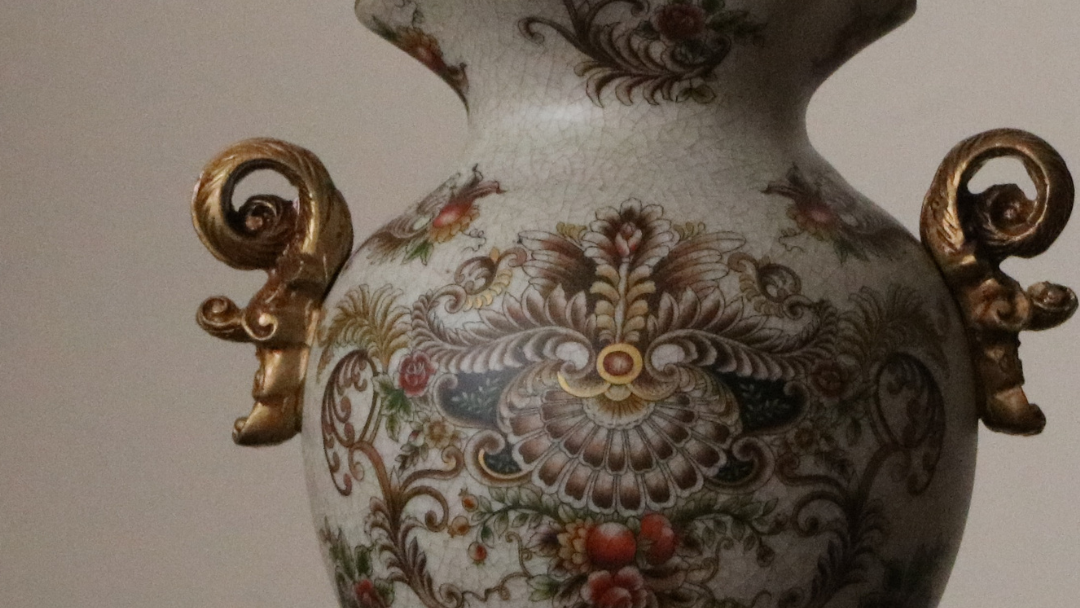MARGO VELA’S FATHER SPOKE TO HER FROM HIS URN IN THE BACK SEAT. His words interrupted a silence she’d craved for years. Somehow, he’d found a way past his metal vase, the cheapest one at the mortuary.
She turned towards the urn, questioning the noise she’d heard.
You’re going too fast, he said. His tone sounded fresh and untainted by years of liquid abuse.
It meant he hadn’t started drinking today yet. Instead, the threat of a bomb whistling through the air hid behind his voice. Only a week had passed since he’d slipped into the pool.
Margo tried ignoring him with the radio. Sometimes, she shamelessly looked for the stations that played her old band.
The chill dug into her bones, carving space for itself, and refused to come out. She turned the heat up and rubbed her hands together.
As soon as she got back to work at the animal shelter, she’d mix her father’s ashes with the backstock cat litter. It sounded more reasonable to her with every mile she drove.
Nobody else was scheduled to work with her that day, so she rushed to cover her shift before noon. Her teeth enjoyed one of her true genuine pleasures: pounding a wad of Wrigley’s down to a flavorless stump. She drained it and stuck another cigarette in her mouth. Juicy Fruit was her father’s favorite gum. He said chewing it used to help him drink a little less if he really tried.
You never knew when to listen. Now you’re stuck like this, Frank said. Cleaning up animal shit in your middle age.
“Don’t worry. I’ve been waiting. You’ll be litter in a few minutes,” she whispered, still too scared to raise her voice toward him.
Take me to the Pink Flamingo. They’ll know what to do, he said.
“I’m not taking you to your stupid bar,” Margo said, turning onto Route Way 90. A gush of wind swept in from the half-open windows. For a moment she feared her father would get sucked out like a loose paper in the back. She’d considered bringing him home in the trunk, but he wasn’t her groceries or worn luggage. A father’s love wires you together, she thought. Unfortunately, the gravity from inside his bottle had swallowed him whole.
Her lighter sparked and a haze blew from her lips, scratching her throat on the way out. Her singing voice didn’t matter anymore.
The moist air in the truck collected for now, frosting the windshield. She stopped her teeth from clattering by biting onto her Newports. The rest of her gum clung to her cheeks.
She traced several of her habits to how she spent time in that very truck. Her father would take her upstate to Mimi’s when he knew he couldn’t help himself from causing too much damage.
A car further up the road cut into her lane, forcing others to make space. More snow and sleet had collected than anybody expected.
Uff da! Slow down. Act like you know how to drive, her father said from underneath the lid. I taught you how to, didn’t I? I put you on my lap and let you make mistakes. Now you can stick shift, he said.
Margo nodded.
Then why can’t you steer now? Frank asked. You break so late every time. Think about what you’re doing. Focus. You do the same thing with everything else. It’s just like with your music. When I taught you how to play guitar, you really knew how to play. No wonder nobody noticed you on stage. You’ve let twenty years pass, too scared to try again, he said.
An infomercial interrupted his berating, but not for long enough.
Twenty years spent looking after you, she thought.
Useless, he said from the urn. Useless. Do us both a favor. Do something.
Her fingers shook on the wheel as the impulse to swerve into the oncoming lane briefly swayed her.
Next to her a white field blended in with the sky. She leaned forward to get a better look at the road. “The frozen chosen,” Margo’s mother used to say. She said it most when it stormed so hard that you couldn’t see past your hedges or walk without getting lost. “We are the frozen chosen. Lutherans and Presbyterians where no one can stand it. Be proud of that.”
Frank’s truck lurched closer to three hundred thousand miles as the fuel gauge sank closer to empty. Margo’s next check wouldn’t come for another couple of days. Every week, Debt had a habit of running her pay down to zero. The size of the crowds she had once played for made her think that money was more abstract. Something she could be irresponsible about. Now she found something lonely in a refrigerator holding only condiments.
The only thing worse than being useless is being ungrateful, her father said from the urn. This time he slurred his words. Confusion echoed between every syllable. Sometimes he liked to shake his head instead of yelling. Somehow that was louder.
“Stop. Please stop. Please,” Margo said.
Check the glove box. You clearly need it, he said.
Margo picked through several napkins and came across a handful of untouched vodka nips. Her father’s secret stashes kept him well-equipped whenever his thirst struck. The first few drinks of the day made him irritable. The last few splintered him into a million people all at once. There were so many of him, he could always talk to himself for hours.
My drinking? We both know why I really drank, he said.
“I spent my adult life making sure you wouldn’t treat me like this,” she said.
I was the last one that cared, her father said.
“We are the frozen chosen,” Margo’s mother said laughing to herself one night, sitting outside on the porch.
Margo and her bandmate, Milo, had come back from a show and found her there in the dark.
Her mother couldn’t stop herself from shaking. She was so cold. She explained to Margo that she couldn’t go back inside because her Daddy had hurt himself again. Milo’s presence made everything that much more embarrassing.
“He’s raging. I’d hide it from you, but I can’t this time,” her mother said, unable to stop Margo and Milo from rushing in.
Nobody seemed home until Margo stepped onto a spill inside the kitchen. A broken bottle bled on the floor and a picture frame hung crooked on the wall.
“Hello?” Margo called into the unlit house.
Her father groaned in the next room, threatening her if she came any closer, so she didn’t.
She let go of the wheel and closed her eyes, momentarily letting the tires steer for themselves.
“You shouldn’t have to suffer too,” Milo said backstage after Frank ruined another show, heckling them from the VIP area. Neither of them knew how long the poisoning would take.
“I’m going to die with no shoes on,” Frank liked to say when he got sick.
She wondered whether the liquor or the pesticides had hurt his gut the most. After all, he’d drowned in a pool, free from both of them. The cost of getting out became meaningless once you got what you wanted. The guilt bubbled up her throat.
“Drink up,” she said to the back of the car, swallowing both nips in as many breaths. The vodka hardened the gum and made it unchewable. She cracked the window further down for a moment, spit the wad out, and replaced it with another.
What did you say to me? her father asked.
“You could have saved us both two decades. You should have just gone away,” she said to the urn.
The truck’s accelerator stalled and then fired back. It had to be struggling in the cold.
“I’m sorry I can’t take you with me,” Margo’s mother said once before bedtime. Her father had started early that day. A solitary bag hid behind her sneakers.
The first song Margo wrote was about her mother. How Margo never said goodbye to her, pretending to be asleep so she wouldn’t have to.
Milo’s crooning and Margo’s guitar playing cut through the truck’s radio. Every once in a while their songs came on with the other bands from their era. The lyrics they’d written together in Margo’s garage, decades before, sounded just as new. His inflections still surprised her. There had been something there and she knew it because she could still hear it after so long. Milo’s singing in the recording hit the high notes he couldn’t reach live towards the end. She’d never hold it against him for also leaving.
Lately, she’d convinced herself that when talking about fate, you became “chosen” by virtue of being the only one left.
Her father asked her to turn the radio off. Do it now, he said.
She closed her eyes again and looked for Milo. This time, she let her father take full control of the wheel. His blurry vision swerved while she breathed in the last of his aging smokey smell. He’d sunk into the fibers of the truck over the years.
What did pesticides taste like? How much of it had been incinerated along with him?
“We are the frozen chosen,” Margo’s mother used to say.
The truck’s wheels headed towards a concrete wall. Margo reached back and pulled the urn onto her lap. The lid came off, falling by the pedals. She scooped Frank up as best she could, rubbed his embers across her face, and swallowed her gum.
ESTEBAN CAJIGAS is a Colombian writer who works from his six story walk-up in the East Village. Esteban earned an MFA from Antioch University in Los Angeles. His fiction has appeared in publications such as Venture Magazine, The Paragon Press, the Black Horse Review, and others. He also previously lived in Boston, where he contributed to The Boston Globe and The Suffolk Voice. His photography has been published by The Ephimiliar Journal and his music has been featured by Entertainment Weekly.
Like what you’re reading?
Get new stories, sports musings, or book reviews sent to your inbox. Drop your email below to start >>>
NEW book release
Ghosts Caught on Film by Barrett Bowlin. Order the book of which Dan Chaon says “is a thrilling first collection that marks a beginning for a major talent.”
GET THE BOOK



